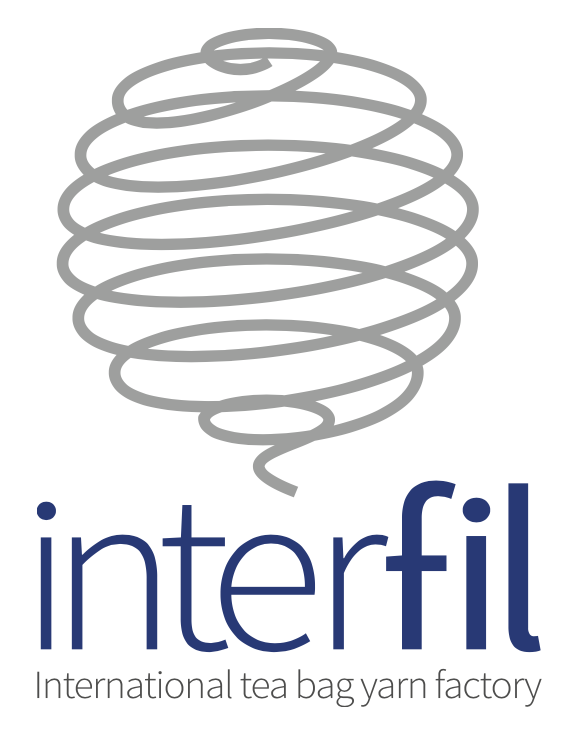Mission
RESEARCH AND DEVELOPMENT
CERTIFICATES
SPECIALIZATION
ENVIRONMENT
SOURCING
Cotton
ISO 14001 ENVIRONMENT MANAGEMENT
ISO 5001 ENERGY MANAGEMENT
OHSAS 18001 OCCUPATIONAL SAFETY SYSTEM
SA 8000 SOCIAL ACCOUNTABILITY
PLA
COMPOSTABILITY
Cotton
PLA
New product R&D is an integral part of the continuous improvement programme of Interfil, based on the purpose to meet customer needs. We are continuously evolving in relation to development of alternative fibres and new manufacturing technologies. University laboratories and research bodies are helping us to carry on our ideas as well as those of our customers. We are able to plan and develop your ideas.
CERTIFICATES
Interfil pursues modern management of food quality and safety; for this reason,
Our production plants (outsourcing) have the following certifications:
Our production plants (outsourcing) have the following certifications:
- BRCGS “GLOBAL STANDARD FOR PACKAGING AND PACKAGING MATERIALS”
- Health Certificate
- Halal Certificate
- Analysis-Migration tests BY ACCREDITED LABORATORIES
- Confomity declaration
- Material Safety Data Sheets (MSDS)
Moreover, Interfil is present in world markets in a transparent and ethical way; since it is part of the SEDEX platform, it is able to
reach this goal.
reach this goal.
- SEDEX (Supplier Ethical Data Exchange).
SPECIALIZATION
Our departments and premises have been planned to manufacture yarns for filter bags in compliance with all the regulations on
the hygiene of products that came into contact with foodstuffs.
All our products are manufactured in an environment that follows all Good Manufacturing Practices (GMP) process requirements
and protection against the occurrence of food security risks.
From Quality Management System we can assure you:
the hygiene of products that came into contact with foodstuffs.
All our products are manufactured in an environment that follows all Good Manufacturing Practices (GMP) process requirements
and protection against the occurrence of food security risks.
From Quality Management System we can assure you:
- dedicated Personnel responsable for product safety;
- GMP procedures;
- traceability;
- HACCP system;
- corrective Action;
- shelf life system;
- FIFO system.
ENVIRONMENT
Interfil strives to reduce environmental impact by means of a system monitoring energy, water and waste loss and follows the European Directive EEC 94 / amended “Packaging and packaging waste” 62.These guidelines concern the inclusion of requirements related to the environment when designing and manufacturing packaging material. It protects the environment by supporting and proposing Organic Cotton 100% (where the use of synthetic pesticides is not allowed) and 100% PLA (Bio-polymer made from sugar source and completely biodegradable).
SOURCING
Cotton
100% cotton sourcing is OEKO TEX certified, for standard cotton; GOTS and OCS certification for organic cotton. Upon request, we also supply BCI Cotton (Better Cotton Initiative).
Further it is produced upon the following management certification:
ISO 9001 QUALITY SYSTEMFurther it is produced upon the following management certification:
ISO 14001 ENVIRONMENT MANAGEMENT
ISO 5001 ENERGY MANAGEMENT
OHSAS 18001 OCCUPATIONAL SAFETY SYSTEM
SA 8000 SOCIAL ACCOUNTABILITY
PLA
PLA polymer is produced from dextrose (sugar) obtained from the processing of corn grown for other industrial applications. The quantity used is 0.0005% of total world corn production, and thus there is no impact on food prices or food availability. PLA polymer production technology does not necessarily require the use of corn, it can be producted from any product containing sugar. Sugar beets, wheat or sugar cane can also be used during the entire manufacturing process from sourcing agricultural raw materials to polymerization – there is substantially less water usage compared to the production processes for other manmade fibres present in today’s global textile market, that make PLA the ideal product to meet all environmental sustainability requirements in full compliance with relevant standards and regulations. The PLA biopolymer environmental footprint associated with CO2 emissions during PLA production is very small compared to the footprints of all the other synthetic fibres. Still another advantage is that PLA polymer production consumes less energy.
The polymer is 100% certified biodegradable and compostable.
The polymer is 100% certified biodegradable and compostable.
COMPOSTABILITY
Cotton
Our cotton thread is not certified biodegradable and compostable, but as a natural product, cotton is biodegradable and breaks down when placed in a compost pile or compost bin (domestically). Cotton can also be recycled and used in the manufacture of useful materials such as insulation, carpet, upholstery stuing and other.
PLA
The polymer of all our PLA threads is certified biodegradable and compostable. PLA degrades by hidrolysis at temperature above 65° C and humidity above 20%, so biodegradation times may vary considerably depending on the environmental conditions. Under Optimal composting condition of 65° C and 95% humidity such as those of normal industrial composting agents, PLA products degrade in 50 days. The times are extended to 120 days in a domestic compost at a temperature of 40° C.
Credits: Edge - Siti Web Lucca
